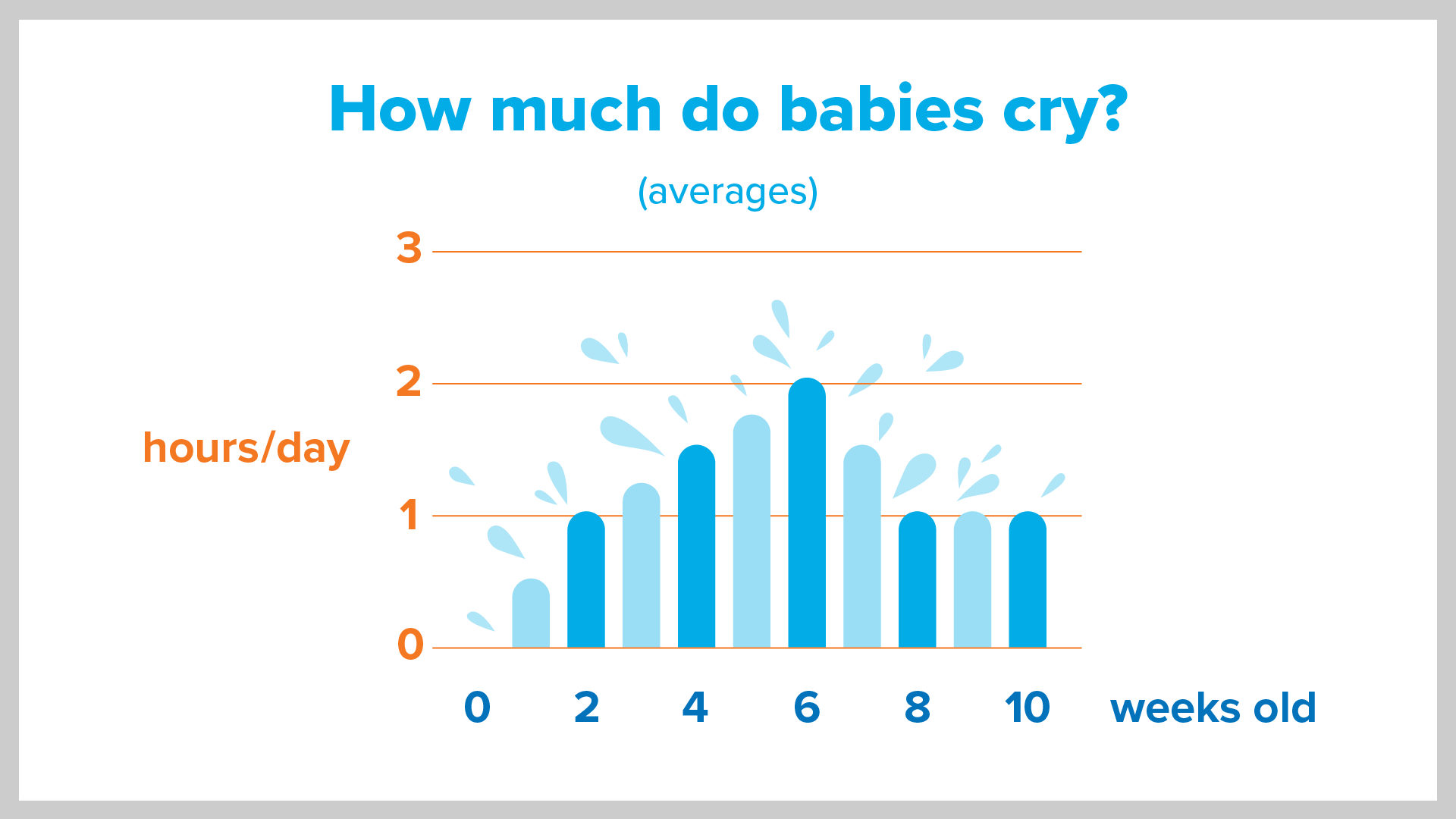During the first months, crying is your baby’s main way to communicate with you. Often you will know what different-sounding cries mean. But sometimes it’s hard to know what a baby needs, even when you know them very well. This happens to all parents and caregivers.

Comforting a Crying Baby
When your baby cries, first find out if they are hungry, wet or in pain. After you have taken care of those needs, look for ways to comfort them. In time you will learn how your baby likes to be comforted. Here are some ways that work for many babies:
- Wrap your baby snugly in a blanket. This is called swaddling.
- Walk with your baby in a carrier on your chest. Being very close and hearing your heartbeat calms your baby.
- Gently rock your baby in a rocking chair, or sway gently from side to side with your baby in your arms.
- Hum, sing or speak softly.
- Help your baby suck their thumb or fist if they want to, or let them suck on your clean finger.
If you need more help, call the Birth to Five Helpline’s Fussy Baby Program. They can answer your questions about crying or any other parenting topic.

About Colic
All babies cry, and many babies are fussy at certain times of the day. But some babies cry harder and longer than others. This is called colic, and it usually happens when your baby is between 2 weeks and 4 months old. There is no single reason for colic. Most babies who have colic are healthy, but you can ask your baby’s doctor to check for a health problem. Often babies are just unable to soothe themselves.
To soothe a colicky baby, start by taking care of their physical needs, then try your usual ways of comforting them. Here are some more things to try:
- See if your baby is too warm or too cold.
- Let them hear a calming sound, like a vacuum cleaner or clothes dryer.
- Hold your baby on their side or stomach. Always put them down on their back.
- Offer your baby a pacifier.
- Avoid feeding your baby too fast, and burp them.

Help with Diaper Rash
Diaper rash is an irritation where diapers touch or cover your baby’s skin. This can happen at anytime, but it is more common in babies older than 6 months. It is usually caused by damp skin. Here is how to prevent and soothe diaper rash.
- Change diapers often to keep your baby dry.
- Clean your baby’s skin gently, to avoid more irritation. Warm water and a soft cloth work well. Pat your baby’s skin dry.
- Leave your baby’s diaper off for short periods to let the skin dry.
- To protect the skin, apply petroleum jelly (Vaseline) or zinc oxide ointment.
- If your baby has blisters or sores, has a fever, or if the rash doesn’t go away in two or three days, call their healthcare provider.

About Swaddling
Swaddling is when your baby’s arms and legs are wrapped up in a thin blanket. Parents often learn how to swaddle their babies in the hospital after giving birth.
“When done correctly, swaddling can be an effective technique to help calm infants and promote sleep.” – American Academy of Pediatrics
Here are some swaddling safety tips:
- The blanket should be snug around the baby’s chest and arms, but leave room for their knees and hips to bend. You should be able to stick two or three fingers between the blanket and your baby’s chest. If you can’t swaddle a little more loosely.
- Stay within arm’s reach of your swaddled baby except when they are in their crib.
- Always put your baby to sleep on their back. Never put your swaddled baby down on their stomach.
- Stop swaddling when your baby starts trying to roll over. This can happen as early as 2 months.
Learn more about how to swaddle your baby.
When You Feel Overwhelmed
Crying and other baby-care stresses can be very hard on parents. These stresses can even lead parents to shake or hit their baby. This can have lifelong health effects, including blindness or brain damage. Treating a baby this way is abuse, and it is against the law. Even if shaking or hitting does not cause lasting damage, parents can feel guilty about it for a long time. If you are very stressed, put your baby in their crib on their back, walk into the next room, and count to 10. Remind yourself that the tough moment will pass. You can get through it. If you cannot calm down, get help. Ask a friend or relative to give you a break, or contact Childhelp at (1-800) 422-4453 for help and support. |
The First Things First Parent Kit was developed in partnership with Health Research for Action/UC Berkeley. © 2023 The Regents of the University of California. Additional video, graphic and other content © 2023 First Things First. All rights reserved.


